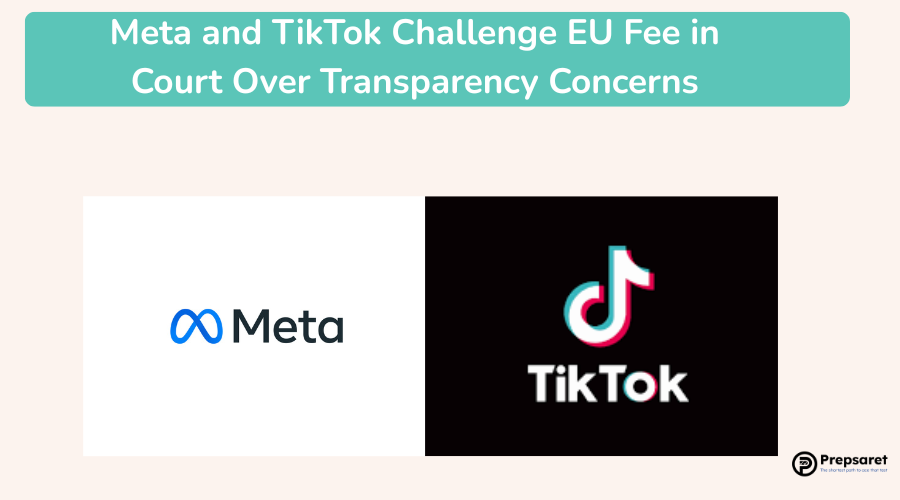Meta Platforms and TikTok appeared before Europe’s General Court on Wednesday to contest a supervisory charge imposed by the European Union, claiming the calculation process was flawed and the resulting amounts unfair.
Both tech companies argued that the European Commission’s approach lacked clarity and relied on inaccurate data.
The dispute centers around the Digital Services Act (DSA), enacted in 2022, which obligates major online platforms to contribute a supervisory fee.
This annual levy, equivalent to 0.05% of each company’s global net income, is intended to offset the Commission’s expenses in overseeing compliance with the DSA.
The fee amount is determined by the platform’s number of average monthly active users and its profit or loss status in the previous fiscal year.
Related story: OpenAI Strikes Unlikely Cloud Partnership with Google Amid Ongoing AI Competition, Sources Reveal
Concerns Over Calculation Methods
During the court session, Meta’s representative, Assimakis Komninos, emphasized that the company was not refusing to pay its portion but took issue with how the Commission had worked out the figures.
According to Komninos, the fee was based on the earnings of Meta’s parent company rather than those of its subsidiary, raising serious concerns about fairness and legality.
“The provisions in the Digital Services Act, or DSA, go against the letter and the spirit of the law, are totally untransparent with black boxes and have led to completely implausible and absurd results,” he stated.
Similarly, TikTok voiced frustration with the process. The company’s lawyer, Bill Batchelor, argued that the fee was neither fair nor balanced. “What has happened here is anything but fair or proportionate.
The fee has used inaccurate figures and discriminatory methods,” Batchelor told the panel. He also criticized the Commission for effectively forcing TikTok to pay for other companies, inflating its own costs, and for applying an excessive cap based on group profits.
Batchelor further accused regulators of counting users multiple times if they switched between devices, which he claimed unfairly increased TikTok’s user numbers and, by extension, its fee.
In response, Commission lawyer Lorna Armati defended the methodology, asserting that using consolidated group profits was appropriate because those resources are available to the entire group.
“The providers had sufficient information to understand why and how the Commission used the numbers that it did and there is no question of any breach of their right to be heard now, unequal treatment,” she said.
A verdict from the General Court is expected sometime next year.
Read next: Tesla Plans Public Robotaxi Service Launch in Austin on June 22
Elevate your career path with Prepsaret! Whether you’re aiming for certifications like PMP, CompTIA, or HR certifications, Prepsaret is the perfect partner for your exam prep.
Access premium study materials, realistic practice tests, and professional guidance tailored to help you excel on exam day and advance your professional future!

